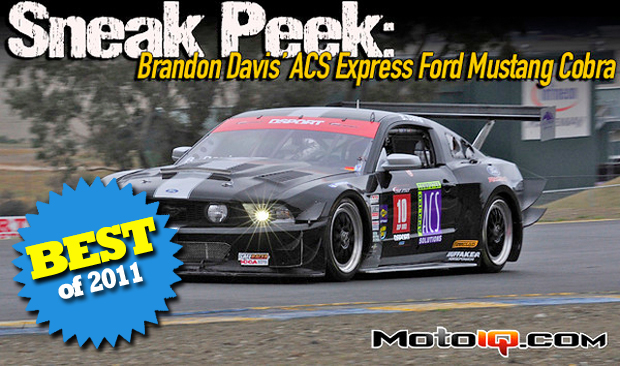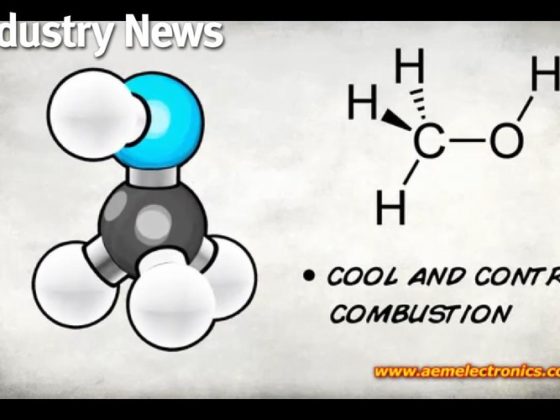,
 |
| The rear wing is made of carbon fiber and sports a gurney flap which is properly designed. The wing probably adds several hundred pounds of downforce at 100 mph. It is mounted to the rear frame structure via some very stiff mounts and held on by quick release pins so you can access the trunk easily! |
 |
| The large carbon front splitter creates downforce by trapping stagnation caused by the front fascia. It also adds several hundred pounds of downforce. It is mounted to the tubular structure we showed you a few pages back and is very strong. |
 |
| The rear diffuser has the proper 7-10 degrees included angle and strakes to help form vortices to help keep the air flow attached. A good basic design. A lot of time attack cars get the diffuser wrong and have too steep of an angle. |
 |
| Rear trim tabs ala DTM give every bit of downforce. We think these are not legal for SCCA and were added just for Time Attack. |
 |
| Front canards create some downforce and side vortices that help prevent air from curling under the car making the rear diffuser more effective. We think that these too were added just for time attack and are not legal for SCCA. |
 |
| The underbody is almost flat, good for drag and effective airflow to the rear diffuser. |
 |
| Composite door panels and doors are used. The entire body is nearly all carbon fiber. ACS tuned the bodywork in a wind tunnel. |
 |
| This unique diffuser was used to get the car below Sonoma’s strict 104 db sound limit. Surprisingly drift cars do not have a sound limit when Formula D runs there. |
Hopefully we will get to see the ACS car face off against some of the fastest time attack machines later in the season. With stickier tires, more aero and the inlet restrictor removed, the ACS car should be able to give the fastest time attack teams fits. This car is the most sophisticated unibody based race car we have seen short of ALMS, DTM and JGTC machines. We hope you enjoyed looking around it, we sure did!


